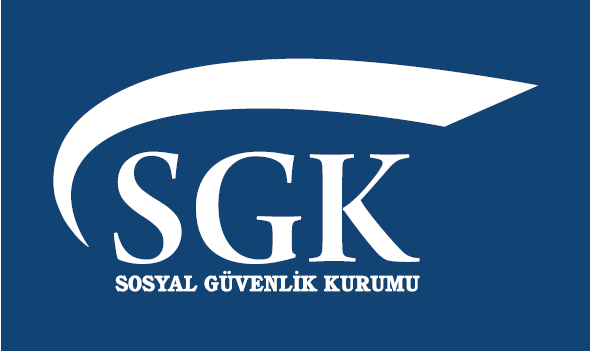In Turkey, the Social Security Institution (SGK) plays a crucial role in ensuring social security and providing essential benefits to the country’s population
Established in 2006, the SGK serves as the primary authority responsible for managing social security programs, healthcare services, and pension schemes. This article aims to provide a comprehensive overview of the SGK functions, contributions, challenges, and its impact on the Turkish society.
Structure and Functions of the SGK
The SGK operates under the Ministry of Family, Labor, and Social Services and acts as a centralized institution for managing social security affairs in Turkey. Its primary functions include collecting social security contributions, providing healthcare services, managing retirement pensions, and disbursing various other social benefits. With a vast network of branches across the country, the SGK ensures accessibility and efficient delivery of its services.
Social Security Programs
The SGK administers several social security programs that cover different segments of the population. The main programs include:
Health Insurance
The SGK oversees the universal health insurance system, providing access to healthcare services for all Turkish citizens. Through the General Health Insurance scheme, individuals are entitled to receive medical treatments, hospital care, medication, and preventive healthcare services.
Retirement Pensions
The SGK manages the pension system, which ensures income security for retired individuals. It implements a pay-as-you-go system, where the contributions of current workers fund the pensions of retired individuals.
Unemployment Insurance
The SGK administers the unemployment insurance program, providing temporary financial support to individuals who have lost their jobs. This program helps alleviate financial hardships during periods of unemployment and assists in job placement and training.
Occupational Accident and Disease Insurance
The SGK offers coverage for workplace-related accidents and diseases, providing medical treatment, compensation, and rehabilitation services to affected workers.
Contributions and Financing
The SGK’s operations are financed through contributions from employers, employees, and the government. The funding structure is based on a principle of shared responsibility. Employers contribute a certain percentage of their employees’ wages, while employees also contribute a portion of their salaries towards social security. The government provides additional funding to bridge any gaps and ensure the sustainability of the system.
Challenges and Reforms
The SGK faces several challenges in its mission to provide comprehensive social security coverage. Some key challenges include:
Financial Sustainability
As the population ages and life expectancy increases, there is a growing strain on the pension system. The SGK must address the financial sustainability of the pension scheme to ensure future retirees receive adequate benefits.
Informal Employment
The prevalence of informal employment in Turkey poses a challenge to the SGK’s revenue collection. Many individuals in the informal sector do not contribute to social security, limiting the resources available for social benefits.
Healthcare Costs
Rising healthcare costs pose a significant challenge to the SGK. The institution must strike a balance between providing quality healthcare services and managing costs effectively to maintain a sustainable system.
To address these challenges, the Turkish government has implemented various reforms aimed at strengthening the social security system. These reforms include enhancing contribution compliance, expanding coverage for informal workers, introducing pension reforms, and improving the efficiency and effectiveness of healthcare services.
Impact on Turkish Society
The SGK has had a profound impact on Turkish society since its establishment. It has played a crucial role in reducing poverty rates, improving access to healthcare services, and providing income security for retirees. The universal health insurance system has increased healthcare coverage, leading to better health outcomes and improved quality of life for Turkish citizens.
Moreover, the social security programs administered by the SGK have contributed to social stability and provided a safety net for vulnerable individuals and families. The unemployment insurance program has helped mitigate the impact of job loss, supporting individuals during challenging periods and facilitating their reintegration into the labor market.
Conclusion
The Social Security Institution (SGK) in Turkey serves as a vital pillar of social security and welfare for the country’s population. Through its various programs, the SGK provides healthcare services, retirement pensions, unemployment insurance, and coverage for occupational accidents and diseases. While facing challenges such as financial sustainability and informal employment, the institution continues to work towards ensuring comprehensive social security coverage for all. The SGK’s impact on Turkish society is evident in the reduction of poverty rates, improved healthcare access, and enhanced social stability. As Turkey continues to evolve, the SGK remains a cornerstone of its social protection system.








Comments are closed